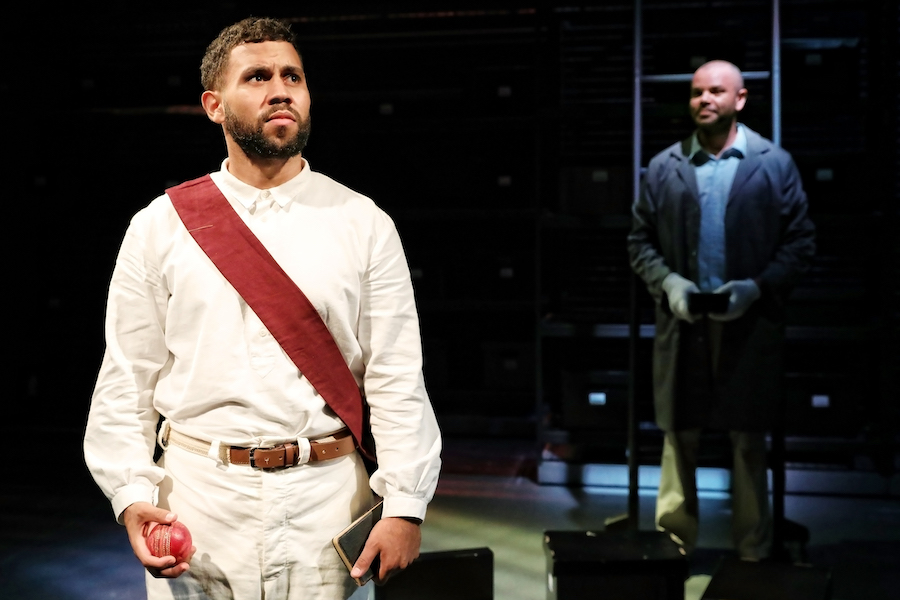Everyone should know this story. It’s about our great national obsession and our great national neglect. We are reminded of that quote of Faulkner’s which has captured the attention of so many historical fiction writers: “The past is never dead. It’s not even past.”
Black Cockatoo - Sydney Festival
Black Cockatoo ... Dubs Yunupiŋgu, this funny and moving play is about more than sport
On the cricket frontiers of the living and the dead, between the present and the past, the theatre makes you wonder If the audiences might be themselves corpses ...
“I'm not playing cricket with someone who won't eat lunch with me,” says Unaarramin, known as Johnny Mullagh.
On the cricket frontiers of the living and the dead, between the present and the past, the theatre makes you wonder If the audiences might be themselves corpses ...
“I'm not playing cricket with someone who won't eat lunch with me,” says Unaarramin, known as Johnny Mullagh.
Black Cockatoo 2020 Ensemble Theatre
Playwright Geoffrey Atherden; Director Wesley Enoch


Despite the enormity of his achievement, Mullagh is no Bradman. There’s no museum named after him, even though his life story would likely make for a much more interesting exhibition given the cultural and political clashes he found himself embroiled in. But is it really any surprise to learn that Australia conveniently forgot to celebrate an Indigenous man’s successes?


Most Australians – even most Australian cricket fans – couldn’t tell you anything about Johnny Mullagh, the Jardwadjali cricketer who led a team of Aboriginal players on a tour of England in 1868. That group became the first organised sports team from Australia to tour internationally, and the result wasn’t too shabby: they won as many matches as they lost and many were a draw. Mullagh was a talented all-rounder (even donning the wicket keeping gloves from time to time to great success) and the team’s most valuable player, now recognised as Australia’s first Indigenous sporting hero.


